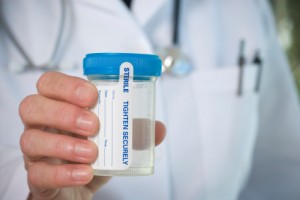 Although the number of states that are legalizing marijuana is increasing, the U.S. Department of Agriculture is sticking to their “Drug-Free Workplace” Program. In a memo to over 100,000 employees, the USDA stated that while some may be permitted by state law to use marijuana for recreational purposes, it “is not authorized under Federal law nor the Department’s Drug-Free Workplace program.”
Although the number of states that are legalizing marijuana is increasing, the U.S. Department of Agriculture is sticking to their “Drug-Free Workplace” Program. In a memo to over 100,000 employees, the USDA stated that while some may be permitted by state law to use marijuana for recreational purposes, it “is not authorized under Federal law nor the Department’s Drug-Free Workplace program.”
Under this program, the USDA may conduct drug tests randomly, after an accident / unsafe practice, or if they are under reasonable suspicion that a worker is using drugs. These tests check for substances identified by the Drug Enforcement Administration as Schedule I or II. Schedule II drugs, such as cocaine, Ritalin, and methadone, are categorized as substances with accepted medical use but have the potential for abuse. Conversely, Schedule I drugs have no accepted medical use and boast an even greater abuse potential than Schedule II. These drugs include marijuana, heroin, and LSD. The Drug-Free Workplace program has conducted Schedule I and II drug tests since 1988 and shows no sign of adjusting to recent marijuana legalization laws.
The USDA memo reminds workers that everyone who tests positive for marijuana, no matter the state, will be disciplined – including those who use medical marijuana. The memo references Medical Review Officer Manual, stating, “State initiatives and laws, which make available to an individual a variety of illicit drugs by a physician’s prescription or recommendation, do not make the use of these illicit drugs permissible under the Federal Drug-Free Workplace Program.” This puts those using medical marijuana under the same jurisdiction as recreational users.
While that may seem harsh, it should be noted that marijuana is still illegal under federal law. Therefore, the USDA, as a federal agency, must maintain a marijuana-free policy. Additionally, working under the influence of marijuana can potentially threaten the safety, health, and security of other USDA workers and the American public.
However, an article on the subject does note that federal policy might be in for a change. The Food and Drug Administration is performing a study on marijuana’s safety and medicinal effects. Should the Administration downgrade marijuana from its Schedule I status, the USDA’s strict stance on the drug may change









